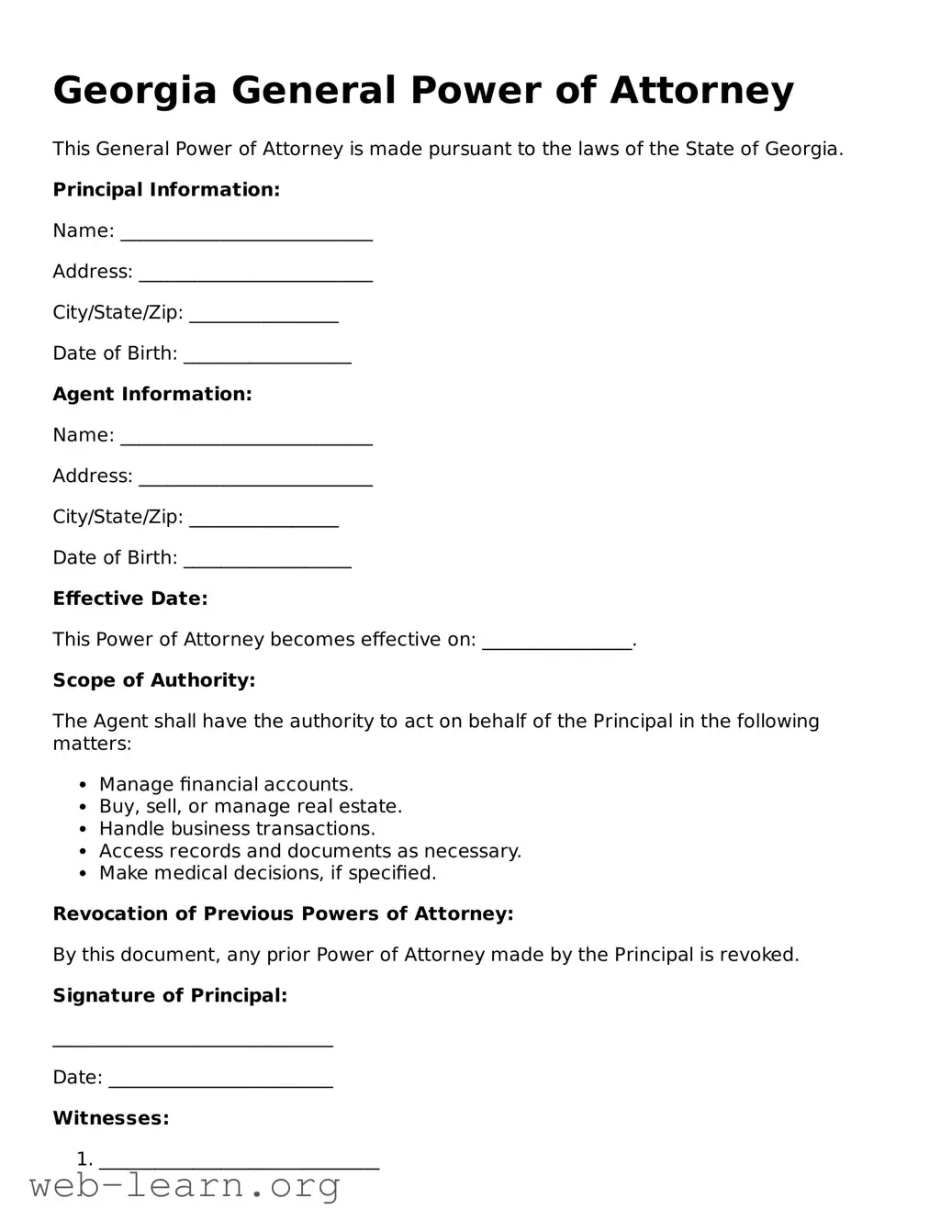Georgia General Power of Attorney
This General Power of Attorney is made pursuant to the laws of the State of Georgia.
Principal Information:
Name: ___________________________
Address: _________________________
City/State/Zip: ________________
Date of Birth: __________________
Agent Information:
Name: ___________________________
Address: _________________________
City/State/Zip: ________________
Date of Birth: __________________
Effective Date:
This Power of Attorney becomes effective on: ________________.
Scope of Authority:
The Agent shall have the authority to act on behalf of the Principal in the following matters:
- Manage financial accounts.
- Buy, sell, or manage real estate.
- Handle business transactions.
- Access records and documents as necessary.
- Make medical decisions, if specified.
Revocation of Previous Powers of Attorney:
By this document, any prior Power of Attorney made by the Principal is revoked.
Signature of Principal:
______________________________
Date: ________________________
Witnesses:
- ______________________________
- ______________________________
Notary Acknowledgment:
State of Georgia
County of ________________________
On this _____ day of ____________, 20__, before me, a notary public, personally appeared the Principal named above who acknowledged that he/she executed this instrument as his/her free and voluntary act.
_______________________________
Notary Public
My Commission Expires: ____________
